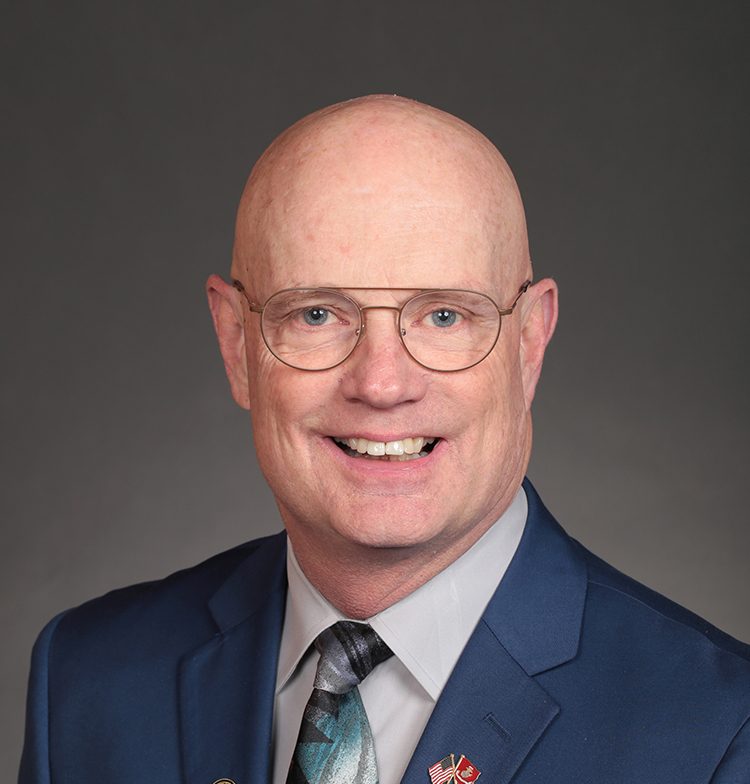AEA reforms announced by Governor Kim Reynolds during her Condition of the State Address have been a source of great debate and concern, and for good reason. The quality of our children’s education is at stake. In emails and interviews I have expressed the importance of getting this right, and I have been listening closely to the feedback of my school superintendents, AEA personnel, parents and others impacted by the manner in which essential educational services are delivered. As a member of the Education Committee, I also had the opportunity to speak to the Governor, her staff and the Director of the Department of Education, McKenzie Snow, at length on these proposals. In this edition of Freedom Watch, I will highlight what I have learned, why I believe that change for the better is necessary, and why we need to guard against the “don’t moved my cheese” mentality.
First, let’s start with why change is necessary. The unfortunate reality is that the current system is failing our special needs children. Iowa is spending more money per special needs student than the national average and our results are poorer. The Nation’s Report Card (NAEP) in 2017, 2019, and 2022, which is the best apples-to-apples comparison we have, ranked Iowa 30th in the nation or worse on nine of twelve assessments for our special needs children. The NAEP is the same assessment provided to a representative sample of students across all states using the same federal definition of students with disabilities. Additionally, the state assessment in 2023 showed a 41% proficiency gap for students with disabilities as compared to overall student results.
The United States Department of Education has recognized this problem and designated Iowa as “needs assistance.” If Iowa does not act, the Biden Administration could determine what changes are needed, along with all the federal intrusion and loss of control that would accompany such an outcome. Monitoring by the federal government is scheduled to begin this fall.
While many AEA personnel do a fantastic job helping our students, it is also true that AEAs have operated without meaningful oversight. Schools can’t hold them accountable because they do not control the money and the Iowa Department of Education can’t hold them accountable because it lacks both the resources and the authority. This needs to change.
Here is a fact to contemplate: Iowa is the ONLY state in the nation that requires all school districts to pay into AEAs and then use that same agency for special education services. Let us remember that this system has resulted in unacceptable scores for our special needs students. The status quo cannot continue.
Here are some additional facts to consider in the context of this conversation: AEAs employ six times more staff than the Department of Education and own at least fifty-four properties. The annual AEA budget is $529 million, with the average total compensation package for an AEA Chief totaling $309,667. For perspective, this is far more than the Head of the Department of Education, or the Governor of Iowa are paid. This does not pass the commonsense test, but it does help explain the reaction by some to the proposed changes.
Another interesting tidbit is that only 62.8% of AEA funds are focused on special education, with an estimated 19% overhead. I don’t know about you, but for me these facts cry out for greater oversight and the need for change.
In discussions with school superintendents, it has been acknowledged that compensation packages for AEA Chiefs are excessive and that creating efficiencies and better services for our children should be the priority. With the amendment to the Governor’s original proposal, I believe we are creating a system that will better serve our special needs students.
How will the Governor’s amended proposal improve the current AEA system? It will empower schools to have control over their special education and education services funds. If schools choose to continue to use their AEA they can do that. If they want to use a provider outside the AEA system or even bring services in house, they can do that. Other states have competition for many of these services while in Iowa there has largely been an AEA monopoly. It may take a bit of time for additional options to appear in some communities, but I can only conclude that this will improve services for our special needs students over time. Once again, I want to emphasize that if schools want to continue to use the AEAs as they currently do, they can do that, the ultimate local control.
Earlier I spoke about the fact that no one has any meaningful oversight over AEAs. The Governor’s proposal requires that all general supervision and oversight will shift to the Department of Education. Given the fact that the Department of Education is ultimately responsible anyway, it only makes sense to give them the authority and resources to do the job and provide oversight that is clearly needed. This approach could also improve educational outcomes.
Local control of funds by schools should allow schools to hold AEAs accountable for their performance and results. If the results do not satisfy the local school, they have the option of seeking services elsewhere, either from a different AEA, a private service, or by doing it themselves if they choose. This creates far more options than are currently available to provide the best services possible for our special needs students, which should help improve outcomes.
These changes should also result in less overhead and more accountability. There will be no new money required for Department of Education oversight; additionally, these changes would result in the elimination of exorbitant AEA Chief salaries.
I will continue to have discussions with local school officials on these proposals as we work to create a system to better serve our students and improve educational outcomes.
Finally, I want to address some of the absurd accusations I have heard regarding these proposals. I have heard this is being done to help “pay for school choice.” That is beyond ridiculous; one has nothing to do with the other. Thanks to fiscal responsibility by Republicans in Iowa, we are not in need of cutting services. Our reserve and emergency funds are full, and we have a strong budget surplus. Few states are in the positive financial position Iowa is in. The effort here is to address the failing results for our special needs students that cannot be denied.
I have also heard this is yet “another attack on public schools,” which is truly an inexplicable argument, given that these proposals give control over how special education services are delivered back to public schools in an effort to provide them more options to improve these educational outcomes. Additionally, legislation previously passed, such as school choice, was not about attacking public education, but rather about prioritizing students over systems to ensure that our children receive the best education possible in the setting that best works for them.
I was initially skeptical of these proposals, mainly because I knew that we had to get this absolutely right for our special needs students, and therefore a healthy dose of skepticism was in order. While I will continue to listen to the boots on the ground in education for their insight and ways to improve the proposals, certain facts are indisputable. We need to make changes to this system to improve the educational outcomes for our special needs students, and the proposed legislation as amended seeks to create accountability and provide more options for our schools in the delivery of services.
Yes, these proposals move the cheese, but sometimes moving the cheese is necessary for positive change. We should not be afraid of finding ways to do things better. In this case change, for the sake of our children, is essential. We simply cannot be satisfied with business as usual.


















If I had a flat tire and needed to change something to get going down the road again and decided to change my oil that would sound dumb. This is however about the same logic being used for AEAs. No one has identified why there is this problem described here so how can one say changing to school control etc is an answer? It sounds more like finding an excuse to change AEAs just because Gov. Reynolds wants to.